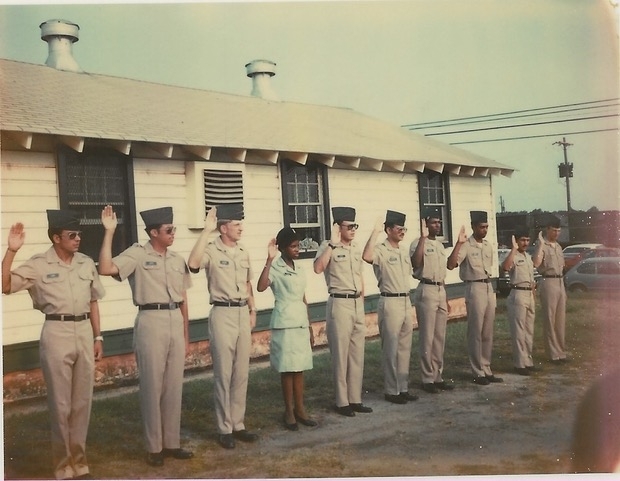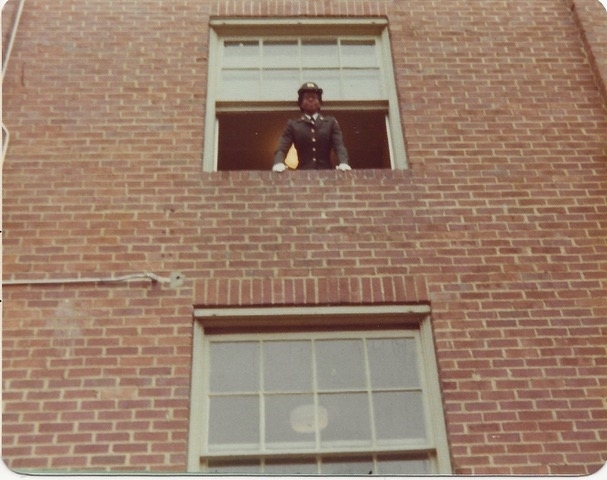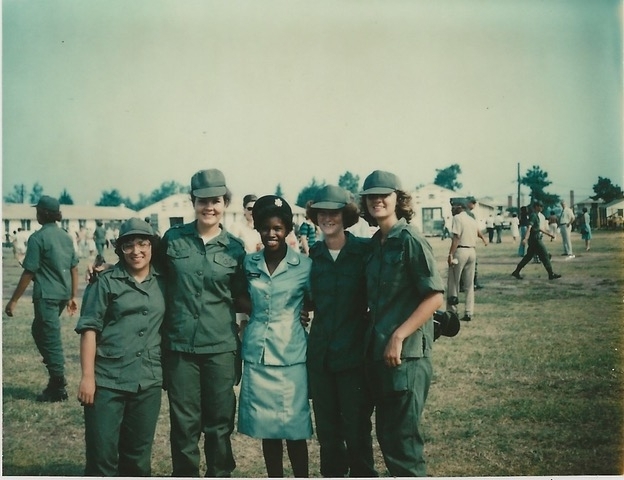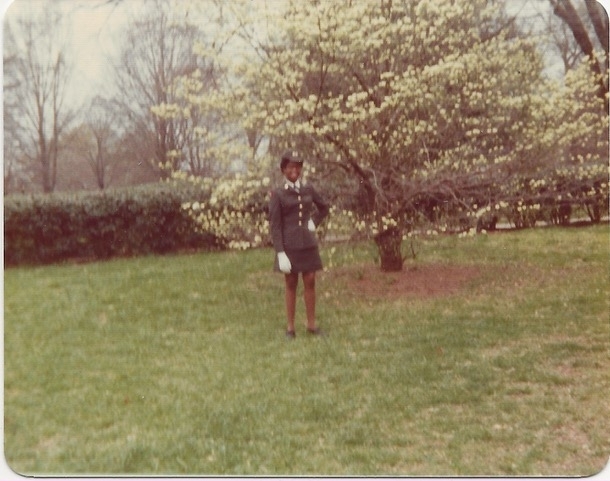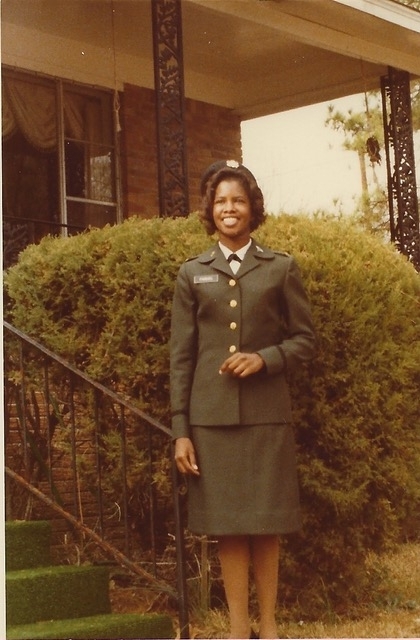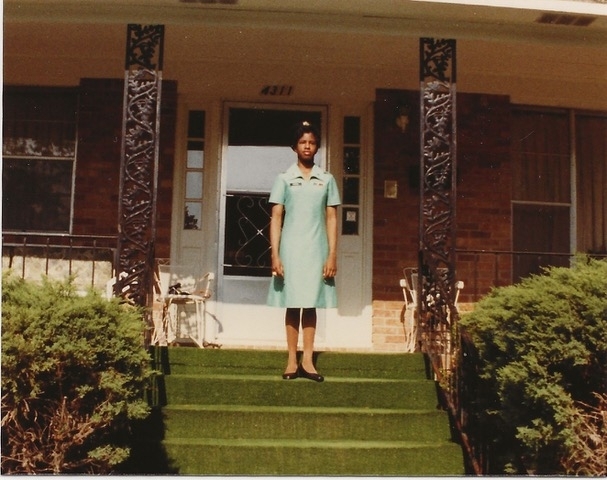A College Credit Turned Into a Career in Uniform
November 8, 2024
- Author
- Mark Johnson
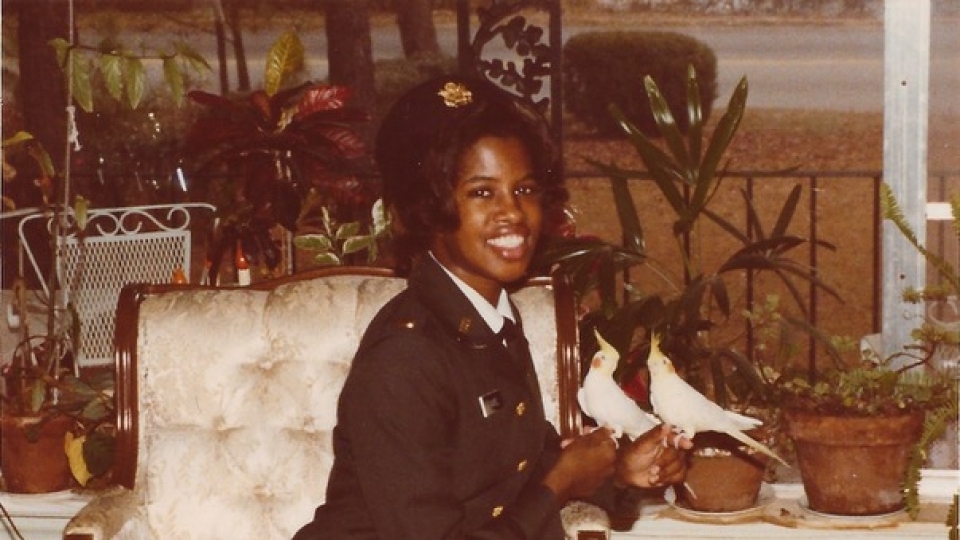
Denise Fanuiel Blackwell would become the first African American woman to graduate from Davidson College in 1977, as well as the first woman commissioned through ROTC at Davidson.
The words “United States military” evoke images of uniforms. The phrase “men and women in uniform” is a synonym for the Armed Forces. Yet in the spring of 1977, the Davidson College ROTC leadership did not know what to do about a uniform for one cadet.
Renee Denise Fanuiel '77, a graduating senior, was about to be commissioned as a Second Lieutenant in the Army. She would be the first woman, and first Black woman, to graduate from the college’s Reserve Officer Training Corps (ROTC). The baggy field uniforms for the past four years had worked well. Now, however, she needed a dress uniform for her commissioning ceremony at what was then Ft. Bragg. This was new territory. The first women ROTC cadets in the nation had graduated only the year before. That same year women were admitted to the military academies for the first time.
“When it came to the dress uniform, they had to get all the books out,” said Fanuiel, whose last name now is Blackwell.
The ROTC leaders solved the problem, and gold bars were pinned on Blackwell’s shoulders. After Davidson, she earned a master’s degree in education at the University of South Carolina before shipping out in 1979 for active duty in what was then West Germany. The Cold War was at its peak, and service members stationed in Germany knew they were posted at ground zero if hostilities broke out between the U.S. and U.S.S.R.
“That was where the bad guys were going to be coming through,” Blackwell said.
Blue Jeans to Camouflage
Blackwell’s path to what could have been the front line of World War III was guided by family, religion and a physical education requirement at Davidson. Two of her uncles were military doctors, and her father served in the Air Force. She was familiar with military service but was not headed in that direction.
Blackwell grew up in South Carolina in a family that drilled in the value of education. If she skipped post-secondary education, she would have been the first in her family NOT to go to college. Her grandfather, born into enslavement, grew up to become a minister and, later, president of a junior college.
During high school, she saw a Davidson ad during a televised basketball game. Friends at her Presbyterian Church encouraged a look, and she added the liberal arts college to her search. Her visit, she emphasized, was on a weekend.
“I went into the library, and it was full of students studying,” Blackwell said during a Zoom interview with Davidson students in 2020. “I thought, ‘This is a school, if you come here, you’re going to have to study … and the people care about it.’”
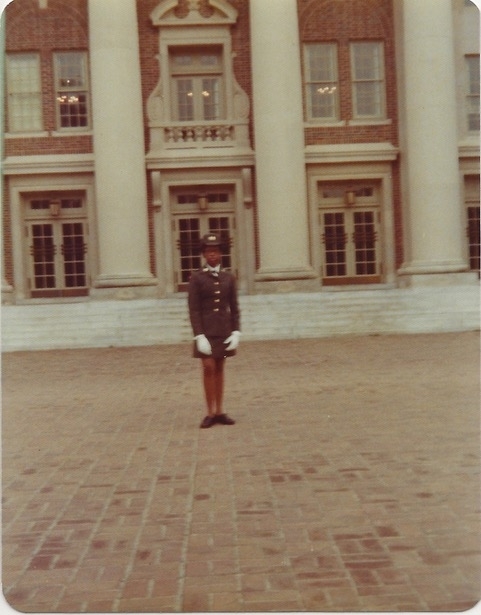
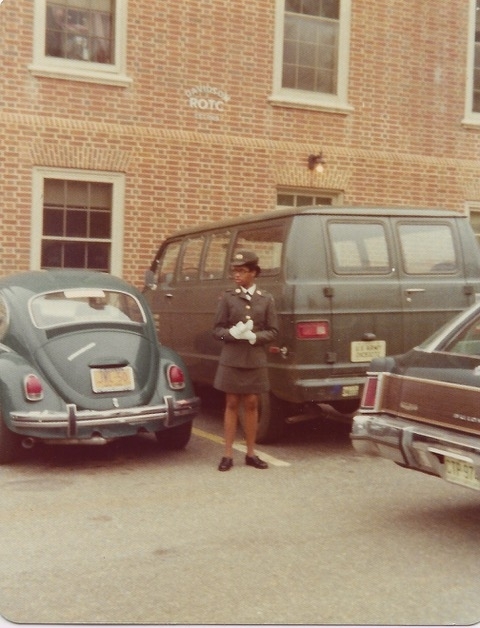
As a freshman psychology major, she was figuring out how to meet her physical education class requirement when she met a group of ROTC cadets.
“I was always the last one picked for sports. I couldn’t hit the ball. I couldn’t make baskets. I couldn’t run that fast. All those things,” Blackwell said. “They said, ‘You take ROTC and that takes care of your physical education requirement. And your last two years, you get paid.’ That sounded good to me!"
It was the late 1970s, and Vietnam was very recent history.
“The military was not the most popular thing at the time,” said J. Patrick Hudson, Blackwell’s classmate and fellow ROTC cadet.
Blackwell belatedly realized freshman year that her advisor had steered her toward pre-med classes for which she lacked the needed preparatory courses in high school. She got back on track, but it took a little time.
“She found her voice and found her footing, and the same thing happened in the Army,” said Matthew Horne, an ROTC cadet from the class of 1978 and retired Army chaplain who has reconnected with Blackwell.
On the Wall
After the scramble over a uniform, commencement and grad school, Blackwell joined an Army medical battalion in the Third Infantry Division. Her unit trained to set up aid stations and field hospitals, including for field surgery.
“We would be right behind the infantry and armored units if sent into combat,” she said.
In Germany, she was one of only four women officers in the 3rd Brigade. She remembers a handful of incidents that seemed demeaning, such as a commanding officer kissing her cheek instead of shaking her hand at a ceremony for her promotion. She was among a small number of Black students in her high school, at Davidson and among Army officers, and she speaks of few difficult moments. Instead, she highlights how those experiences prepared her for interactions across races and in mostly male environments throughout life.
Blackwell rose in both rank and responsibility in administrative roles in the Army, finishing her active duty time at Ft. Jackson, in Columbia, South Carolina, and completing her service as a major in the Army Reserves, including a year in the California National Guard. During her service, she was awarded the Army Commendation Medal and the Expert Field Medical Badge. She and her husband, Donald Blackwell, live in Warrenton, Virginia. Their sons, Calvin and Colin, are a software engineer and electrical engineer, respectively. She served when those in the Army helped deter an apocalyptic global conflagration, but reflects on her contributions in modest terms — collaboration with fellow soldiers and the collective work of her units and the Army.
She saves her laudatory language for others who served, including those who put on uniforms before and after her — the “Greatest Generation” of World War II and the volunteers following September 11, 2001.
“The people who joined after 9/11, they’re like [the World War II generation],” Blackwell said. “They saw this threat and said, ‘I want to go do something about it.’ They were not joining to get school credit. They knew something was happening and wanted to help.”
